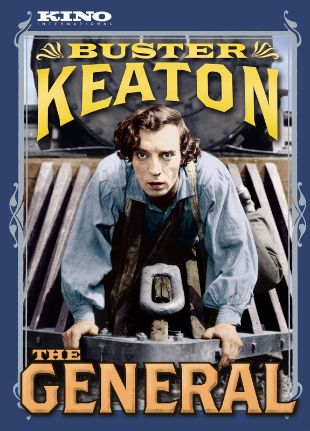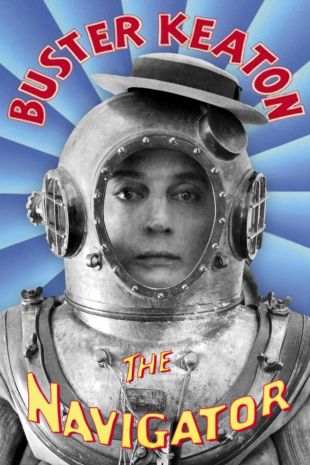Upon graduating from high school, American writer/director Clyde Bruckman entered the infant movie industry as a "gag man" for the many comedy studios of the era. Bruckman settled with Buster Keaton's company in 1921, working on the writing team for Keaton's classic feature films The Three Ages (1923), Our Hospitality (1923), Sherlock Jr. (1924) and The Navigator (1925). In 1926 he moved on to Harold Lloyd's staff, contributing material to Lloyd's For Heaven's Sake (1926), Welcome Danger (1929), Feet First (1930) and Movie Crazy (1932). Bruckman was also credited as director on the three last-mentioned films, and had previously co-directed Keaton's The General (1926). While at Hal Roach studios, Bruckman was listed as director on Laurel and Hardys Putting Pants of Philip (1927), Battle of the Century (1927) and Leave 'Em Laughing (1928). Most historians have concluded that Bruckman's directorial credits were nominal at best; most of the top comedians virtually directed themselves, but didn't want to appear egomaniacal by grabbing all the credit. As proof of this, Bruckman's detractors cite his work on such films as Robert Woolsey's Everything's Rosie (1931), Lloyd Hamilton's Too Many Highballs (1933) and The 3 Stooges' Horses Collars (1935). Without strong creative input from the stars, these films are sloppily constructed and lacking in pace. Bruckman's best talkie work was in collaboration with another self-starting comedian, W.C. Fields; Field's two-reeler The Fatal Glass of Beer, directed by Bruckman, is a comedy classic by any standard. Increasingly uncomfortable as a director, Bruckman drowned his insecurities in liquor. During production of W. C. Fields' Man on the Flying Trapeze (1935), Bruckman disappeared for nearly a week, compelling Fields himself to take over direction. Virtually unemployable in feature films after this, Bruckman found work with Jules White's short subject unit at Columbia, where he filled his scripts with gags and routines lifted from his best silent work. The limit came when Bruckman copied Harold Lloyd's "magician's coat" routine from Movie Crazy (1932) and transplanted it nearly word for word into the 3 Stooges short Loco Boy Makes Good (1942). Lloyd sued Columbia, and Bruckman never again received a movie credit. His last work was for the syndicated Abbott and Costello Show, where once again his scripts were overloaded with repeated routines from Bruckman's glory days. Broke and depressed, Clyde Bruckman borrowed Keaton's gun, purportedly for target practice, and shot himself in a Santa Monica restaurant on January 4, 1955.
Clyde Bruckman
Share on


